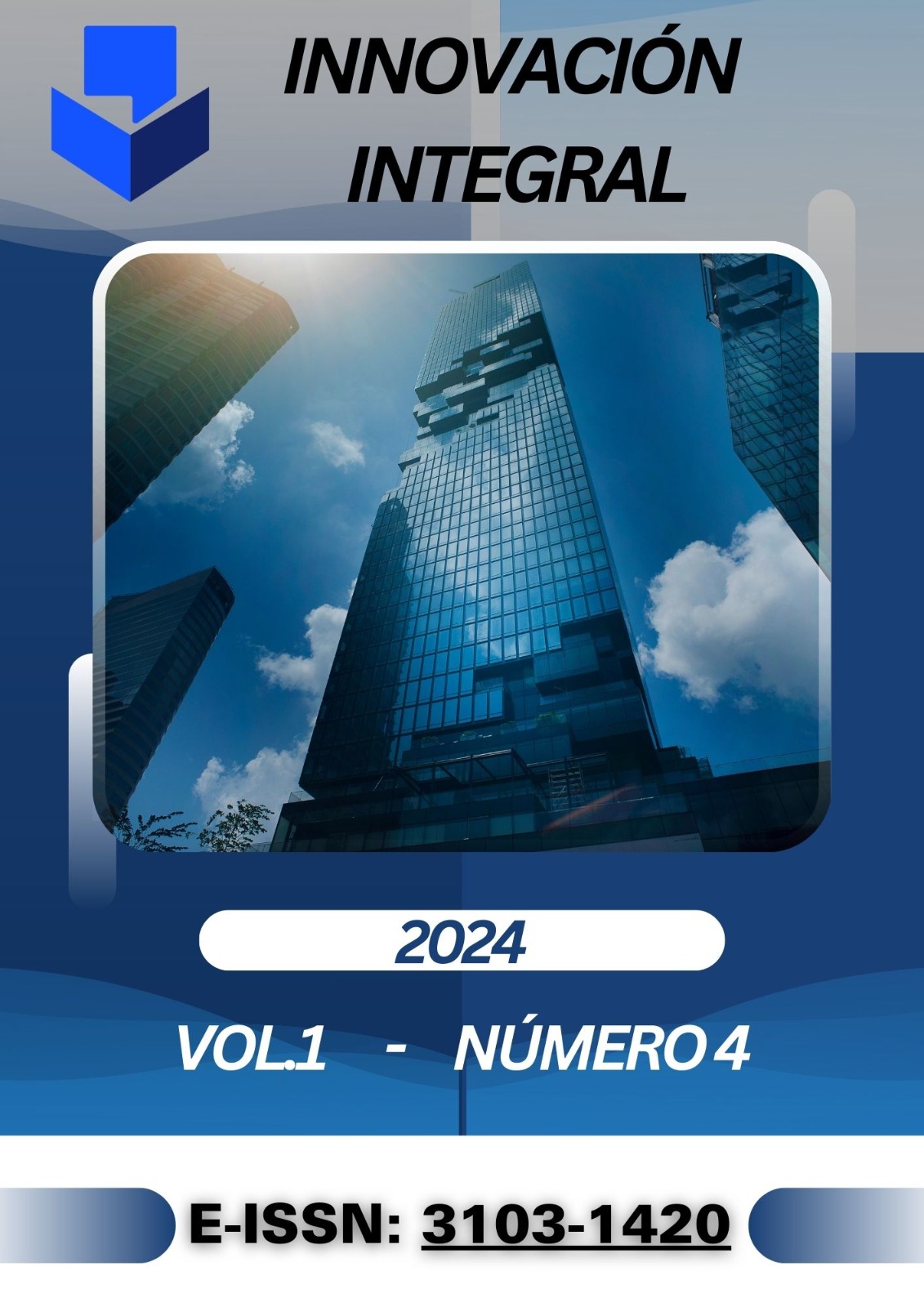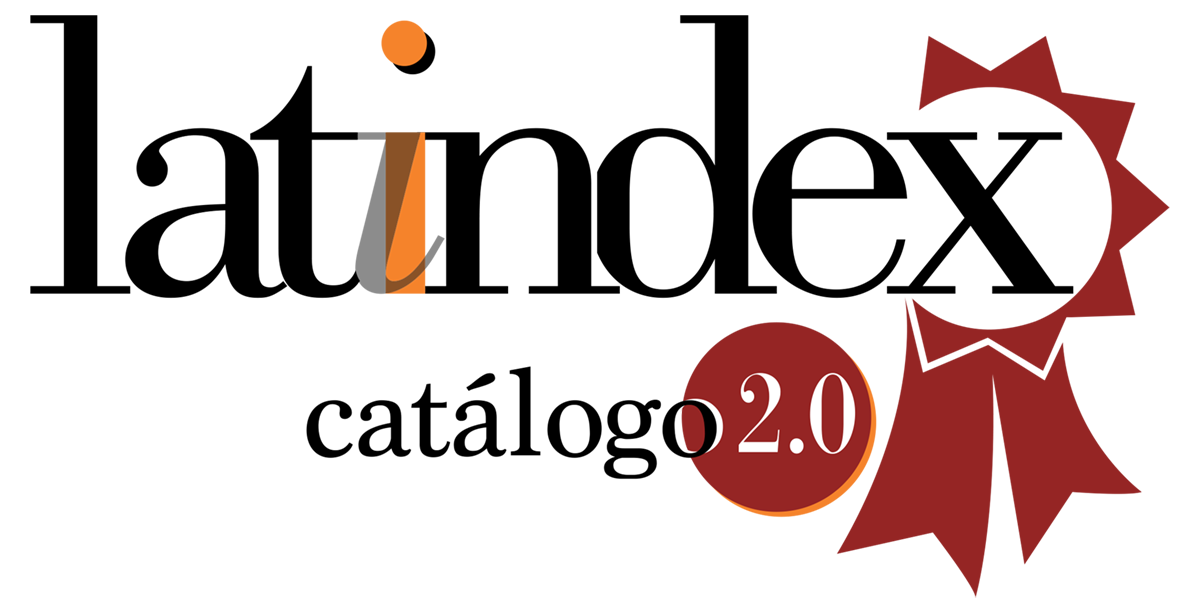Optimización de Programas Educativos Inclusivos mediante Modelación Estadística y Minería de Datos
DOI:
https://doi.org/10.70577/chdc6n20Palabras clave:
Educación, Datos, Minería, Modelos, Optimización.Resumen
El artículo presenta un análisis sobre la optimización de programas educativos inclusivos mediante el uso de modelado estadístico avanzado y técnicas de minería de datos. El objetivo es mejorar la equidad educativa al identificar factores que influyen en el rendimiento académico y evaluar la efectividad de las intervenciones educativas. Se emplean modelos como Random Forest y Gradient Boosting para predecir resultados educativos, mostrando un desempeño moderado, con una ligera superioridad del Gradient Boosting. Los factores clave identificados incluyen el rendimiento académico previo, los recursos disponibles y la ausencia de necesidades educativas especiales (NEE). Se destaca la importancia de integrar métodos estadísticos y analíticos avanzados con consideraciones éticas y contextuales para garantizar políticas educativas inclusivas y sostenibles. El estudio concluye que estos enfoques permiten una mejor comprensión del impacto de las variables educativas y apoyan la toma de decisiones informada.
Descargas
Referencias
[1] Rao, Y. S. N., & Chen, C. J. (2024). Bibliometric insights into data mining in education research: A decade in review. Contemporary Educational Technology, 16(2), ep502. http://dx.doi.org/10.30935/cedtech/14333
[2] Cerezo, R., Lara, J. A., Azevedo, R., & Romero, C. (2024). Reviewing the differences between learning analytics and educational data mining: Towards educational data science. Computers in Human Behavior, 154, 108155. https://doi.org/10.1016/j.chb.2024.108155
[3] Yin, S., Li, H., Teng, L., Laghari, A. A., & Estrela, V. V. (2024). Attribute-based multiparty searchable encryption model for privacy protection of text data. Multimedia Tools and Applications, 83(15), 45881-45902. http://dx.doi.org/10.1007/s11042-023-16818-4
[4] Arriola Navarrete, Ó. (2023). La Brecha Digital En La Revolución Industrial 4.0 Oportunidad Y Reto Para Las Bibliotecas. Revista Interamericana de Bibliotecología, 46(3). http://dx.doi.org/10.17533/udea.rib.v46n3e345719
[5] Batool, S., Rashid, J., Nisar, M. W., Kim, J., Kwon, H. Y., & Hussain, A. (2023). Educational data mining to predict students' academic performance: A survey study. Education and Information Technologies, 28(1), 905-971. http://dx.doi.org/10.1007/s10639-022-11152-y
[6] Mirakhur, Z., Chen, C., & Schwarz, S. (2022). A case study in teaching inclusive teaching. To Improve the Academy: A Journal of Educational Development, 41(2). https://doi.org/10.3998/tia.386
[7] yuang, Y., Yun, Y., An, R., Cui, J., Dai, H., & Shang, X. (2021). Educational data mining techniques for student performance prediction: Method review and comparison analysis. Frontiers in Psychology, 12, 698490. https://doi.org/10.3389/fpsyg.2021.698490
[8] Ampadu, Y. B. (2023). Handling big data in education: A review of educational data mining techniques for specific educational problems. AI, Computer Science and Robotics Technology, 2. https://doi.org/10.5772/acrt.17
[9] Wray, E., Sharma, U., & Subban, P. (2022). Factors influencing teacher self-efficacy for inclusive education: A systematic literature review. Teaching and Teacher Education, 117, 103800. https://doi.org/10.1016/j.tate.2022.103800
[10] Gao, P., Li, J., & Liu, S. (2021). An introduction to key technology in artificial intelligence and big data driven e-learning and e-education. Mobile Networks and Applications, 26(5), 2123-2126. http://dx.doi.org/10.1007/s11036-021-01777-7
[11] Zapata-Cardona, L., & Martínez-Castro, C. A. (2023). Statistical modeling in teacher education. Mathematical Thinking and Learning, 25(1), 64-78. http://dx.doi.org/10.1080/10986065.2021.1922859
[12] Shero, J. A., & Hart, S. A. (2022). Methodological decisions and their impacts on the perceived relations between school funding and educational achievement. Frontiers in Education, 7, 1043471. https://doi.org/10.3389/feduc.2022.1043471
[13] Yağcı, M. (2022). Educational data mining: Prediction of students’ academic performance using machine learning algorithms. Smart Learning Environments, 9(1), 11. https://doi.org/10.1186/s40561-022-00192-z
[14] Baek, C., & Doleck, T. (2023). Educational data mining versus learning analytics: A review of publications from 2015 to 2019. Interactive Learning Environments, 31(6), 3828-3850. http://dx.doi.org/10.1080/10494820.2021.1943689
[15] Alwarthan, S. A., Aslam, N., & Khan, I. U. (2022). Predicting student academic performance at higher education using data mining: a systematic review. Applied Computational Intelligence and Soft Computing, 2022(1), 8924028. http://dx.doi.org/10.1155/2022/8924028
[16] Chen, Y., Schönlieb, C. B., Liò, P., Leiner, T., Dragotti, P. L., Wang, G., ... & Yang, G. (2022). AI-based reconstruction for fast MRI—A systematic review and meta-analysis. Proceedings of the IEEE, 110(2), 224-245. http://dx.doi.org/10.1109/JPROC.2022.3141367
[17] Cao, C., Cui, Z. X., Wang, Y., Liu, S., Chen, T., Zheng, H., ... & Zhu, Y. (2024). High-frequency space diffusion model for accelerated MRI. IEEE Transactions on Medical Imaging, 43(5), 1853-1865. http://dx.doi.org/10.48550/arXiv.2208.05481
[18] Yu, H. (2024). Research on the urban green transportation development level evaluation based on the triangular pythagorean fuzzy multiple attribute decision making. Journal of Intelligent & Fuzzy Systems, 46(3), 6279-6297. http://dx.doi.org/10.3233/JIFS-232579
[19] Zhan, J., Deng, J., Xu, Z., & Martínez, L. (2023). A three-way decision methodology with regret theory via triangular fuzzy numbers in incomplete multiscale decision information systems. IEEE Transactions on Fuzzy Systems, 31(8), 2773-2787. https://ieeexplore.ieee.org/document/10018542
[20] Jyothi, P., & Singh, A. R. (2023). Deep learning models and traditional automated techniques for brain tumor segmentation in MRI: a review. Artificial intelligence review, 56(4), 2923-2969. http://dx.doi.org/10.1007/s10462-022-10245-x
[21] Lye, A., Cicirello, A., & Patelli, E. (2021). Sampling methods for solving Bayesian model updating problems: A tutorial. Mechanical Systems and Signal Processing, 159, 107760. http://dx.doi.org/10.1016/j.ymssp.2021.107760
[22] Okewu, E., Adewole, P., Misra, S., Maskeliunas, R., & Damasevicius, R. (2021). Artificial neural networks for educational data mining in higher education: A systematic literature review. Applied Artificial Intelligence, 35(13), 983-1021. http://dx.doi.org/10.1080/08839514.2021.1922847
[23] Chango, W., Lara, J. A., Cerezo, R., & Romero, C. (2022). A review on data fusion in multimodal learning analytics and educational data mining. Wiley Interdisciplinary Reviews: Data Mining and Knowledge Discovery, 12(4), e1458. http://dx.doi.org/10.1002/widm.1458
[24] Lemay, D. J., Baek, C., & Doleck, T. (2021). Comparison of learning analytics and educational data mining: A topic modeling approach. Computers and Education: Artificial Intelligence, 2, 100016. https://doi.org/10.1016/j.caeai.2021.100016
[25] Lin, H. M., Wu, J. Y., Liang, J. C., Lee, Y. H., Huang, P. C., Kwok, O. M., & Tsai, C. C. (2023). A review of using multilevel modeling in e-learning research. Computers & Education, 198, 104762. http://dx.doi.org/10.1016/j.compedu.2023.104762
[26] Gallardo-Gomez, D., del Pozo-Cruz, J., Noetel, M., Alvarez-Barbosa, F., Alfonso-Rosa, R. M., & del Pozo Cruz, B. (2022). Optimal dose and type of exercise to improve cognitive function in older adults: A systematic review and bayesian model-based network meta-analysis of RCTs. Ageing research reviews, 76, 101591. https://doi.org/10.1016/j.arr.2022.101591
[27] Moradi, M. (2023). A Bayesian Model and Bayesian Classification on the Data Obtained from Children's Educational Activity in the IoT Environment. Transactions on Machine Intelligence, 6(3), 126-136. https://doi.org/10.47176/TMI.2023.126
[28] Hermita, N., Putra, Z. H., Alim, J. A., Wijaya, T. T., Anggoro, S., & Diniya, D. (2022). Elementary Teachers' Perceptions on Genially Learning Media Using Item Response Theory (IRT). Indonesian Journal on Learning and Advanced Education (IJOLAE), 1-20. http://dx.doi.org/10.23917/ijolae.v4i1.14757
[29] Spann, D. J., Cicero, D. C., Straub, K. T., Pellegrini, A. M., & Kerns, J. G. (2024). Examining measures of schizotypy for gender and racial bias using item response theory and differential item functioning. Schizophrenia Research, 272, 120-127. http://dx.doi.org/10.1016/j.schres.2024.08.015
[30] Chen, W., Shen, Z., Pan, Y., Tan, K., & Wang, C. (2024). Applying machine learning algorithm to optimize personalized education recommendation system. Journal of Theory and Practice of Engineering Science, 4(01), 101-108. https://doi.org/10.53469/jtpes.2024.04(01).14
[31] Peng, L. (2021). Quantile regression for survival data. Annual review of statistics and its application, 8(1), 413-437. https://doi.org/10.1146/annurev-statistics-042720-020233
[32] Liu, F., Umair, M., & Gao, J. (2023). Assessing oil price volatility co-movement with stock market volatility through quantile regression approach. Resources Policy, 81, 103375. http://dx.doi.org/10.1016/j.resourpol.2023.103375
[33] Roslan, M. B., & Chen, C. (2022). Educational data mining for student performance prediction: A systematic literature review (2015-2021). International Journal of Emerging Technologies in Learning (iJET), 17(5), 147-179. http://dx.doi.org/10.3991/ijet.v17i05.27685
[34] Ijaz, S., Safdar, T., & Sanaullah, M. (2020). Educational data mining: A review and analysis of student’s academic performance. In I. S. Bajwa, T. Sibalija, & D. N. A. Jawawi (Eds.), Intelligent Technologies and Applications (pp. 510–523). Springer. https://doi.org/10.1007/978-981-15-5232-8_44
[35] Yu, J. (2021). Academic Performance Prediction Method of Online Education using Random Forest Algorithm and Artificial Intelligence Methods. International Journal of Emerging Technologies in Learning, 15(5). http://dx.doi.org/10.3991/ijet.v16i05.20297
[36] Kang, S. (2021). K-nearest neighbor learning with graph neural networks. Mathematics, 9(8), 830. http://dx.doi.org/10.3390/math9080830
[37] Palacios, C. A., Reyes-Suárez, J. A., Bearzotti, L. A., Leiva, V., & Marchant, C. (2021). Knowledge discovery for higher education student retention based on data mining: Machine learning algorithms and case study in Chile. Entropy, 23(4), 485. http://dx.doi.org/10.3390/e23040485
[38] Shu, X., & Ye, Y. (2023). Knowledge Discovery: Methods from data mining and machine learning. Social Science Research, 110, 102817. https://doi.org/10.1016/j.ssresearch.2022.102817
[39] Gupta, M., & Kaul, S. (2024). Ai in inclusive education: A systematic review of opportunities and challenges in the indian context. MIER Journal of Educational Studies Trends and Practices, 429–461. https://doi.org/10.52634/mier/2024/v14/i2/2702
[40] Papadogiannis, I., Wallace, M., & Karountzou, G. (2024). Educational data mining: A foundational overview. Encyclopedia, 4(4), 1644–1664. https://doi.org/10.3390/encyclopedia4040108
[41] Hikmawati, E., Maulidevi, N. U., & Surendro, K. (2021). Minimum threshold determination method based on dataset characteristics in association rule mining. Journal of Big Data, 8, 1-17. http://dx.doi.org/10.21203/rs.3.rs-728509/v1
[42] Ali, Z. A., Abduljabbar, Z. H., Tahir, H. A., Sallow, A. B., & Almufti, S. M. (2023). eXtreme gradient boosting algorithm with machine learning: A review. Academic Journal of Nawroz University, 12(2), 320-334. http://dx.doi.org/10.25007/ajnu.v12n2a1612
[43] Staneviciene, E., Gudoniene, D., Punys, V., & Kukstys, A. (2024). A case study on the data mining-based prediction of students’ performance for effective and sustainable e-learning. Sustainability, 16(23), 10442. https://doi.org/10.3390/su162310442
[44] Manjarres, A. V., Sandoval, L. G. M., & Suárez, M. J. S. (2018). Data mining techniques applied in educational environments: Literature Review. Digital Education Review, 235–266. https://doi.org/10.1344/der.2018.33.235-266
[45] Joaquina De Borba, N., Adriana Santin Ferreira, V., Palhares Dos Santos, T., & Carvalho, S. (2024). Inclusive education: Strategies and impact on contemporary society. Revista Gênero e Interdisciplinaridade, 5(03), 182–191. https://doi.org/10.51249/gei.v5i03.2073
[46] Jiao, P., Ouyang, F., Zhang, Q., & Alavi, A. H. (2022). Artificial intelligence-enabled prediction model of student academic performance in online engineering education. Artificial Intelligence Review, 55(8), 6321-6344. http://dx.doi.org/10.1007/s10462-022-10155-y
47] Jiang, Y., Huang, Y., & Li, Q. (2024). Data-driven instructional decision-making: Framework, instrument, and process. World Journal of Educational Research, 11(3), p72. https://doi.org/10.22158/wjer.v11n3p72
Contribución de los Autores Individuales en la Elaboración de un Artículo Científico (Po-lítica de Ghostwriting)
Todos los autores participaron equitativamente del desarrollo del artículo.
Fuentes de Financiamiento para la Investiga-ción Presentada en el Artículo Científico o para el Artículo Científico en sí
No se recibió financiación para la realización de este estudio.
Conflicto de Intereses
Los autores declaran no tener ningún conflicto de interés relevante con el contenido de este artículo.
Licencia de Atribución de Creative Com-mons 4.0 (Atribución 4.0 Internacional, CC BY 4.0)
Este artículo se publica bajo los términos de la Licencia de Atribución de Creative Commons 4.0
Descargas
Publicado
Número
Sección
Licencia
Derechos de autor 2025 Innovación Integral

Esta obra está bajo una licencia internacional Creative Commons Atribución-NoComercial-CompartirIgual 4.0.
Eres libre de:
- Compartir : copiar y redistribuir el material en cualquier medio o formato
- Adaptar : remezclar, transformar y desarrollar el material
- El licenciante no puede revocar estas libertades siempre y cuando usted cumpla con los términos de la licencia.
En los siguientes términos:
-
- Atribución : Debe otorgar el crédito correspondiente , proporcionar un enlace a la licencia e indicar si se realizaron cambios . Puede hacerlo de cualquier manera razonable, pero no de ninguna manera que sugiera que el licenciante lo respalda a usted o a su uso.
- No comercial : no puede utilizar el material con fines comerciales .
- CompartirIgual — Si remezcla, transforma o construye sobre el material, debe distribuir sus contribuciones bajo la misma licencia que el original.
- Sin restricciones adicionales : no puede aplicar términos legales ni medidas tecnológicas que restrinjan legalmente a otros hacer algo que la licencia permite.



















